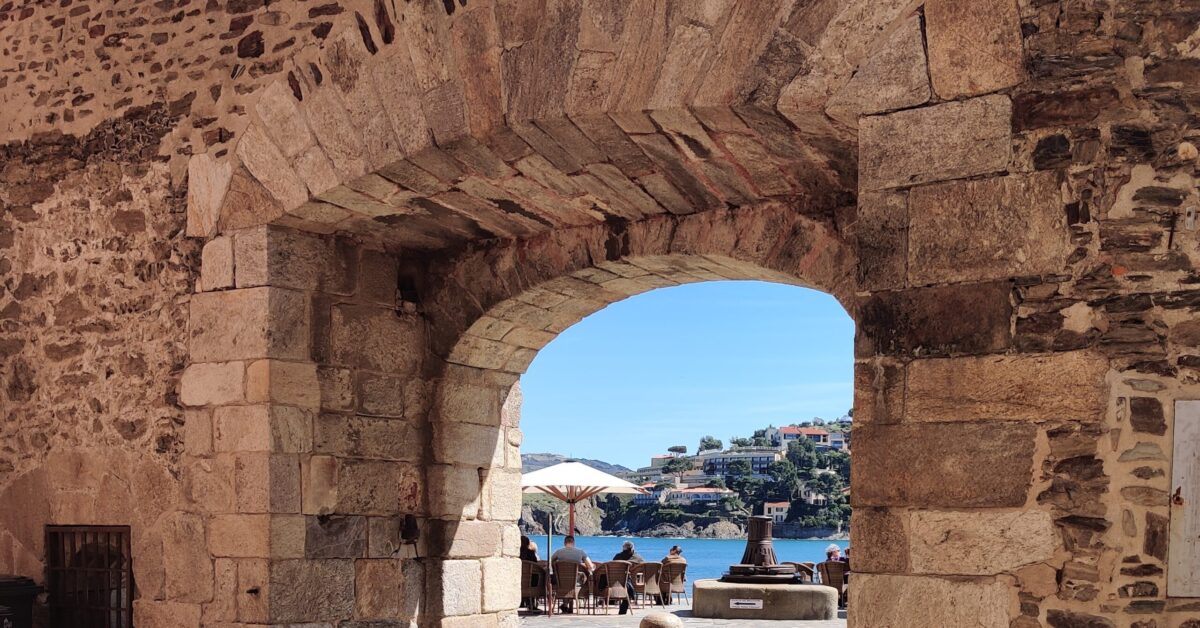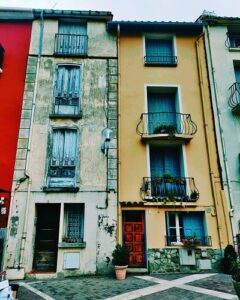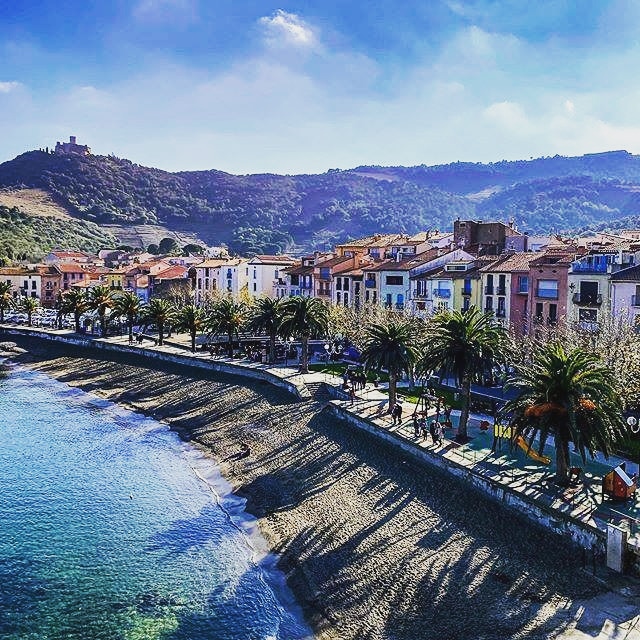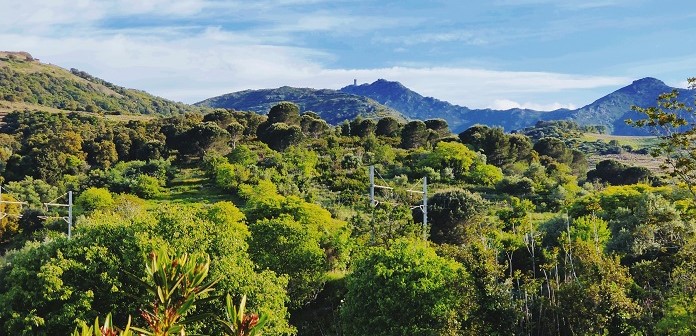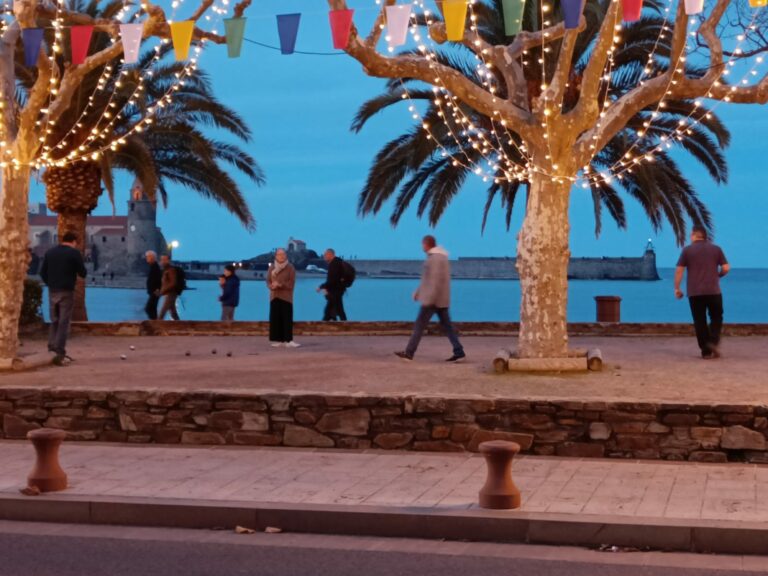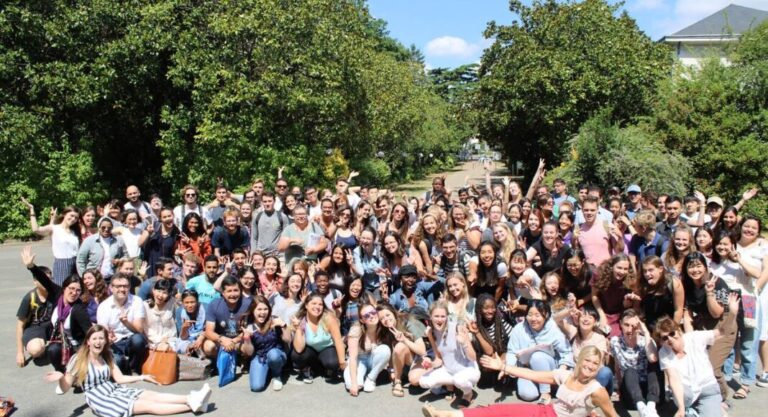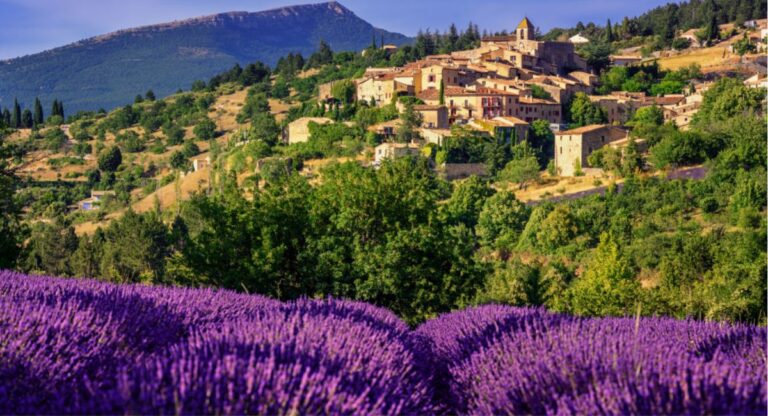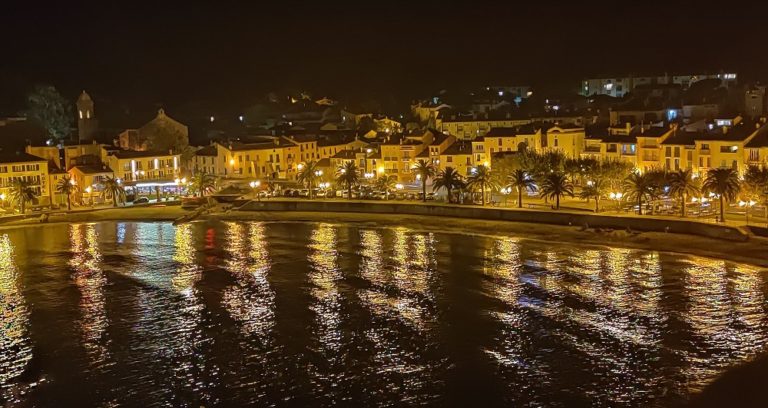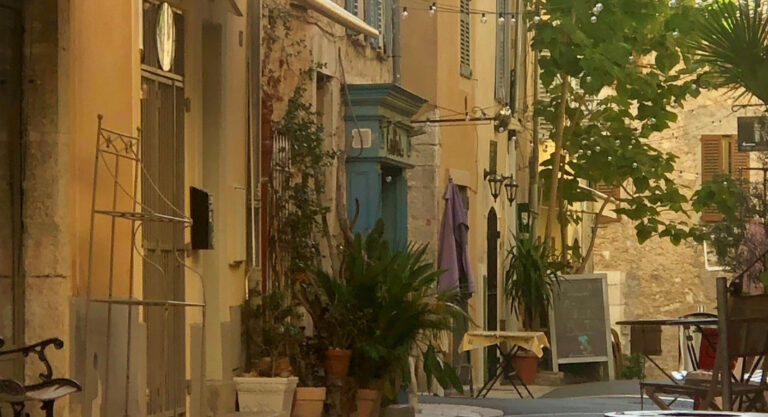One sunny day, in late spring 2019, we visited the office of a sympathetic English real estate agent who’d come highly recommended. He had a reputation for satisfying the persnickety demands of Brits and Americans drawn to authentic, old-world charm, except when it came to authentic, old world living spaces (sometimes dark, always small, usually with no closets, uneven stairs, and possibly bats.)
Our needs were modest, we thought: a small house with a yard for our dog, and, if possible, a view. Definitely a view. One that could be seen through French doors (portes-fenêtres, doors-windows, in French), that gave out onto a terrace from the master bedroom. With an en suite bath. None of that shared bathroom business for us. We are too old, and like to throw our wet towels on the floor, then use them to mop.
We also wanted to live on Rue du Soleil.
“Ah yes, Rue du Soleil. Everyone is interested in Rue du Soleil,” said the sympathetic English realtor. “But you might be in luck. There’s a house that just went up last week.”
Even though we’d been here less than a month, we knew Rue du Soleil was considered one of the nicest streets in Collioure. Wide and sunny and gently sloping, it’s a short block from the sea. Part of the reason it may be so exclusive is that there just aren’t many houses on the rue. It’s a very short street, so inventory is scarce, and the vacancies that do occur happen because the occupant has died. After which, per French inheritance law, the house is passed down to their children. The 86-year-old nephew of the butcher who sold the Matisse family their pork shoulder in the summer of 1905 still lives here, at the bottom of the rue.
The house for sale was a homely stucco box built in 1947. It had only been painted on two sides. It consisted of two small flats used as rental units. In both flats, each tiny room was tiled with a different crazy mid-century tile. One bedroom was painted pistachio, with purple trim. In another, there were two sets of bunkbeds – the better to stuff as many vacationing children into one room as possible. In front, there was a small courtyard, and, in the back, an enormous oleander shrub you could probably see from outer space. Next to the shrub there was a huge inexplicable concrete slab. Somewhere along the way, the owner had walked out the back door and thought, “Do you know what my garden needs? Not a lawn, not a deck, not raised beds and gravel paths, but a hideous expanse of concrete.”
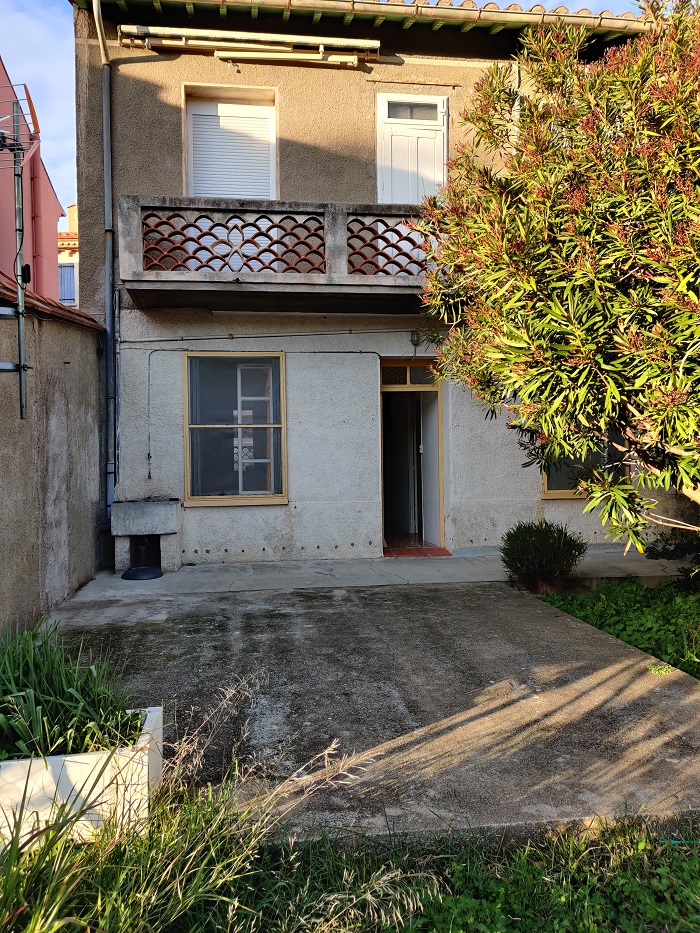
This being France, we weren’t prepared to find a house in less time that it takes to order a croque monsieur. We’d stumbled into the real estate agent’s office for a chat, or so we thought. Now here we were being forced to do math in our heads.
I didn’t care how many inquiries had been made, the moment I saw the huge, inexplicable, concrete slab, I knew that house would be ours. Our backyard in Portland also possessed a huge, inexplicable concrete slab. This inexplicable concrete slab was its French twin.
It was entirely possible that the American inexplicable concrete slab was the reason our house in Portland hadn’t sold. The Portland real estate market had been surface-of-Mercury hot since the Clinton White House, and the homes of our neighbors were snapped up before they even went on the market, often for more than asking price. But for some reason, our house was immune to the frenzy. I blamed the inexplicable concrete slab. We’d lowered the price once, then twice.
To further complicate matters, two days earlier, my daughter had called to say she was pregnant. Jerrod and I had made copious jokes about slipping out of the country before there were grandchildren, but we didn’t take ourselves seriously. I dumbly assumed that my daughter and her husband would wait until they were married for more than a minute. Instead, it would seem, mere hours after my girl and her hubs had bid us farewell in mid-May, they’d dashed home and gotten busy.
I didn’t know what to do. I was as happy as any mom that her daughter was going to have a baby, but I had just fulfilled a life-dream of moving to France. I love my daughter deeply, and our relationship is good (possibly because I am half-way around the world). Did I have to move back to the US to be a good grandma, or could I be a good grandma from France? Once we closed on the house on Rue du Soleil, we’d be close the beach, the café that sells the best Nutella crêpes in town, and a shop that sells all manner of horrible plastic toys. A child’s paradise! Plus, don’t forget about Zoom!
I was chewing my cuticle and worrying that thinking that I could rely on Zoom to connect with a tiny human who shouldn’t be anywhere near screens already made me Bad Grandma when Jerrod interrupted.
The man’s optimism often borders on delusion. He thought we should make an offer right that minute on Rue du Soleil. I reminded him that we were pretty much flat broke until the Portland house sold. Also, should we really buy a house in France when there was a grand baby on the way? He made the reasonable point that there was nothing to worry about for nine-ish months. We weren’t going to rush back to Oregon to sit on the sofa and watch her gestate, were we?
Somewhat convinced, I over-explained our reservations to our real estate agent. He was duly sympathetic. I said that, in any case, I wasn’t worried. I then explained my theory to him about how it was my real estate destiny to always own a house that had a huge, inexplicable concrete slab, one that I would hate, but would never have enough money to tear up, or fix, or even fill with decorative pots of whatever.
“Where is it you’re from again?” He had the look of a man who was using every ounce of discipline not to roll his eyes.
“California.” We always said California, because most French people hadn’t heard of Oregon, and anyway, it’s pronounced the same way as oregano. Telling people we used to live in oregano was good for a half an hour of consternation followed by jokes about having lived in other herbs.
“It’s all making sense now,” he said, and sighed. After that, I confessed that actually we were from Oregon, but you could tell he’d already written off his commission.
Our granddaughter was born on February 20, 2020 in Portland, the same day, and in the same hospital, as the first diagnosed case in Oregon of what was then called the “novel coronavirus.” Jerrod and I had flown back for the birth, then stayed until it became clear that even our willingness to spring for take-out didn’t compensate for our being underfoot.
On the night of March 14, 2020, we flew home to France, and the plane was half full.
On the night of March 17, 2020, we went to our favorite tapas place. It was packed. We’d agreed to read French news only in French. And so, we had no idea whether Covid had arrived or would be arriving soon. It would be another year before the verb tenses started to sort themselves out. In the meantime, we never knew what was going on.
That night, we shared a tall table with a young couple visiting from Marseille. He was a writer and she was an anarchist. Only in France (okay, probably also in Portland) would someone introduce themselves as an anarchist with a straight face. At around ten, the proprietor came around and announced that at midnight they were closing – for who knew how long. President Macron had just closed all bars and restaurants. The proprietor circulated with free pours, and everyone got drunk. The next morning dawned painfully bright and beautiful. But the streets were empty. The first confinement had begun.
Strangely, real estate rolled right on–everywhere. Not long after, we closed on our house in Portland. The new owners didn’t blink at the price, nor the huge, inexplicable concrete slab. According to our sympathetic American realtor, the wife was amused by our impossible-to-keep-clean black granite countertops – every house she’d ever owned had had black granite counter tops. They were her familiar, and thus comforted and irritated her in equal measure.
We hadn’t really settled the question of whether we should return to the States to be proper grandparents, but now, thanks to Covid, it was academic. No one was going anywhere, and who knew for how long. What better time to make a huge real estate investment in a foreign land? Jerrod was giddy at the thought of it. He offered less than asking price and it was accepted the next day. I wasn’t surprised. Say what you will about people from Oregano –we can read concrete slabs like fortune tellers read tea leaves.
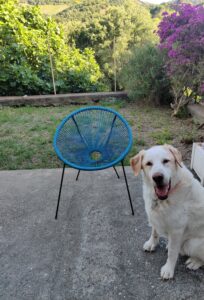
Karen Karbo is a frequent contributor to Frenchly. Her 2021 essay, Au Revoir Thanksgiving was the germ for this column. Karen is the author of fourteen award-winning novels and works of non-fiction including the international bestseller, The Gospel According to Coco Chanel. Her essays, articles and reviews have appeared in Elle, Vogue, O., The New York Times, Tin House, Salon, Slate and elsewhere. To connect with her, buy her books, and learn about her writer’s retreat in Collioure, please visit her website here.
Photo credits, Karen Karbo: “Fisherman Houses in Collioure,” “The Slab,” “Collioure Beach,” “Collioure Mountains,” and “Our Slab.”.

